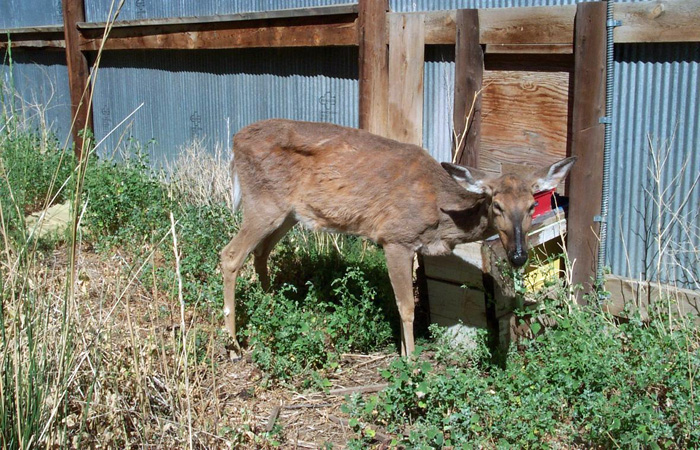Recently, as part of the province’s wildlife health surveillance program, a male mule deer was observed to be unhealthy and was euthanized in western Manitoba, near Lake of the Prairies. Subsequent testing found the animal to have chronic wasting disease (CWD). This is the first time this disease has been found in Manitoba. Other animals in the area may also have CWD, so to ensure the disease is not spread through the transport of a diseased carcass, Manitoba will be immediately implementing a ban on hunting deer, moose, caribou and elk in the area. The boundaries of this area are currently being determined, but will initially include at least a portion of Game Hunting Area (GHA) 22.
CWD is an incurable fatal disease that affects members of the deer family, including white-tailed deer, mule deer, elk, moose and caribou. Animals infected with CWD may appear healthy until the later stages of the disease, and while CWD is not known as a human health risk, meat from a CWD infected animal is not recommended for consumption. In order to protect their health, hunters’ active in areas where CWD has been detected should have their harvested animal tested, practice safe carcass handling protocols and avoid consumption of any animal that has tested positive for CWD.
CWD has been known to infect animals in Saskatchewan, Alberta and 24 states. Manitoba has had very rigorous reporting and testing requirements for CWD, including making it illegal to bring certain unprocessed meat into Manitoba.
The province has immediately begun to plan for additional CWD surveillance actions in the area surrounding this finding and has reached out to multiple stakeholders, First Nations, Metis and other groups who need to be aware. At this time, there is no indication of any connection to farmed elk populations. The elk farming industry has ongoing CWD surveillance and there have been no reported cases in farmed animals in Manitoba. CWD does not infect cattle or other domesticated animals.
On November 5, Manitoba Agriculture and Resource Development announced that the province has launched a population survey of deer, elk and moose populations in the immediate area of the CWD-positive case. These survey results will help determine and assess the effectiveness of management actions. An aerial survey will include the entire area closed to cervid hunting as well as adjacent areas including small portions of Game Hunting Areas 18C and 23A.
Further, the province will be initiating additional sampling from animals in the control area in order to determine the prevalence of the disease. This is an important part of the efforts to respond and make decisions based on science and accurate data.
Hunters and harvesters also have an important role to play in the containment of this deadly disease. Manitoba currently has a mandatory submission zone for all licensed hunter-harvested cervids (see page 60 of the hunting guide). Hunters are required to submit samples from animals harvested within this zone and drop-off locations can be found all over the province.
Regular communication and updated information is important for CWD awareness, education and public action. More information including fact sheets and answers to frequently asked questions will be available online and updated regularly. This will include details on where and how to submit a sample, submission information, hunter test results and most recent updates. The site will evolve and provide Manitobans with easily accessible, up-to-date information. The site can be found at gov.mb.ca.
CWD is a fatal disease that affects members of the deer family, including white-tailed deer, mule deer, elk, moose and caribou. Animals infected with CWD may appear healthy until the later stages of the disease and while CWD is not known as a human health risk, meat from a CWD-infected animal is not recommended for consumption. In order to protect their health, hunters active in areas where CWD has been detected should have their harvested animal tested, practise safe carcass-handling protocols and avoid consumption of any animal that has tested positive for CWD.
The province will need the full co-operation of the public, including hunters, producers, and land-owners to ensure this disease is contained or even eradicated from the area. Hunters with concerns or questions about an animal that has been harvested can contact the province by calling 204-638-4570.





